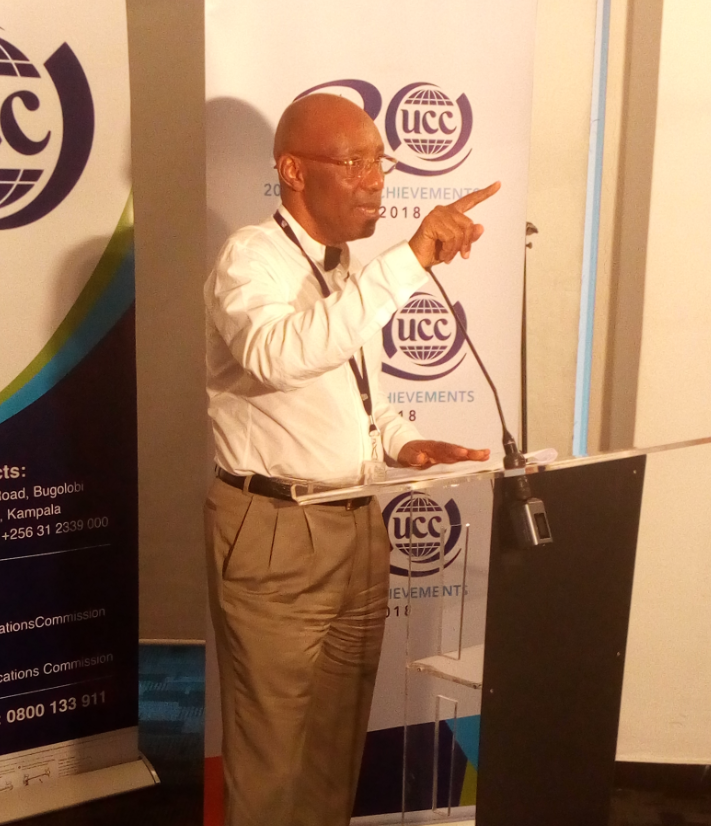
Kampala – The Executive Director of the Uganda Communications Commission (UCC) – the regulator of the communications sector in Uganda Mr. Godfrey Mutabazi has called on government agencies and other partners to embrace ICT as the country strives to achieve the national broadband policy.
“As a country, we cannot afford to be left behind. We need to position ourselves to reap these benefits of ICTs.
“Infrastructure has been recognised as a key backbone in this quest,” he said adding that “we [Uganda] need to have in place the right ICT infrastructure.
The government, through the ministry of ICT and national guidance–together with other partners including the ITU, are working together to develop robust technologies and networks that will help the country achieve the broadband.
According to Mr. Mutabazi, homes, businesses, vehicle and mobile devices are capable of tapping into data throughput speeds of up to 1000Mbps, or 125MBps, with incredibly low latency.
Although the country’s broadband today is largely 3G mobile technologies with parts of the countryside still under 2G coverage service. Such coverage, however, is only ideal for voice services but not data.
Mutabazi attributes the situation to the low appreciation of the benefits and opportunities available with ICTs, low levels of digital literacy, affordability of Internet-enabled terminals and locally insufficient relevant digital content and applications.
He, however, said that broadband policy will assist communities that seek to ensure that citizens have the broadband capacity they need to advance economic development, education, health care, and public safety, among others.
The new study by ITU quantifies the positive impact of broadband, digital transformation and the interplay of ICT regulation on national economies.
It also looks at the transformative power of ICTs is triggering positive change in the global economy.

In the broadband policy according to ICT minister Frank Tumwebaze National Broadband strategy target is 100 percent connectivity for Urban and 50 percent connectivity for rural by 2020. About 19 percent of Uganda’s population don’t have access to basic telephone either due to lack of connectivity or high cost (Handsets and Subscription).
According to UCC, connectivity for digital services is significantly correlated with the level of advancement of ICT policies and regulations, as well as the competition and market power regulatory set-up.
UCC, as regulators of the country’s communications sector, they are keen to ensure access to quality, high-speed broadband services for all Ugandans.
This is aimed at facilitating global competitiveness increased innovation and productivity in both the public and private sector as well as sustainable national development.
“We recognise the value of embracing all technologies in this quest and incorporate these in our regulatory planning – optical fiber, satellite technology, mobile cellular technologies, and other wireless technologies.”





